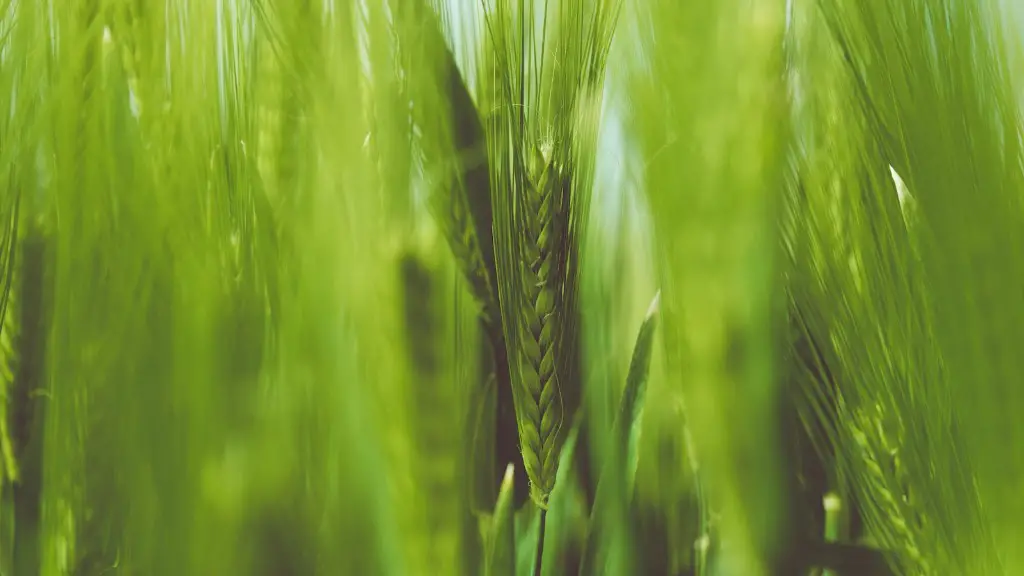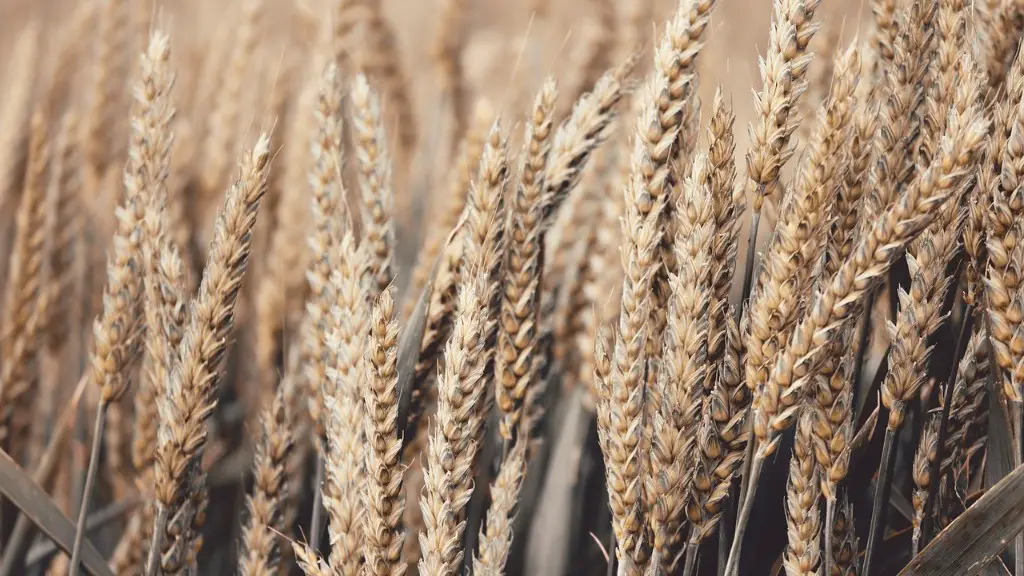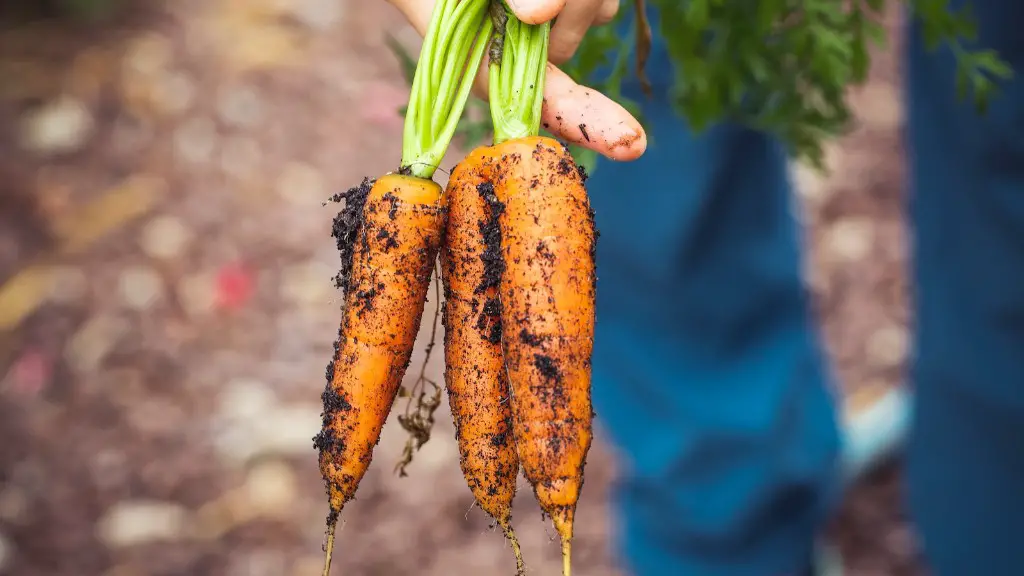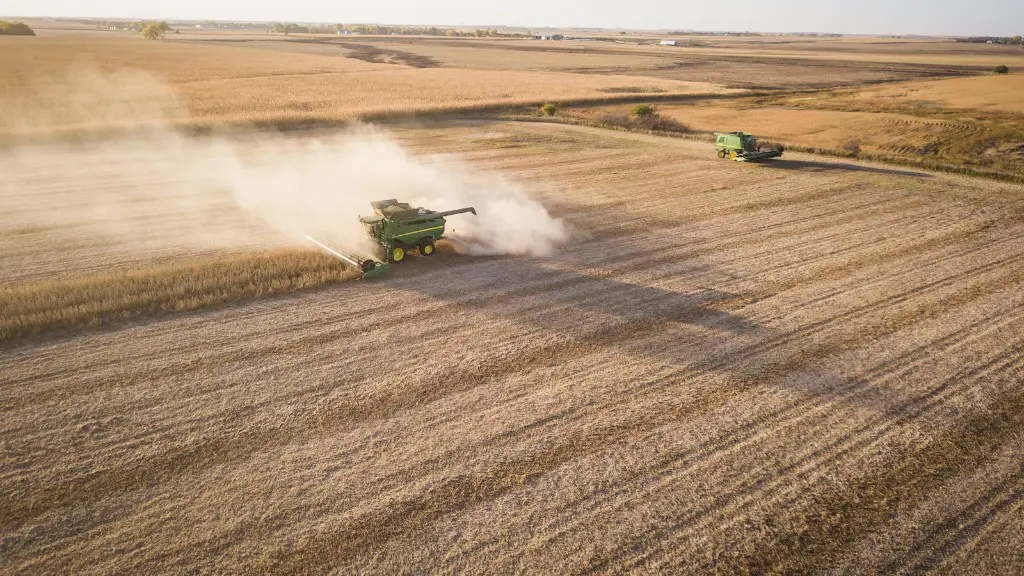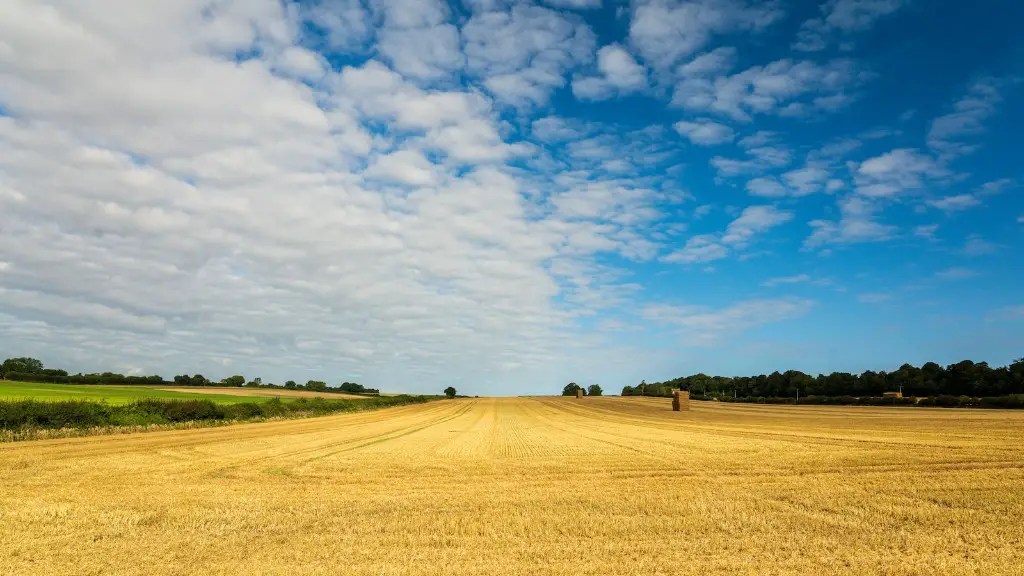Agriculture is a major source of pollution in the environment. The misuse of pesticides and herbicides can lead to water contamination and soil erosion. The burning of fossil fuels by agricultural machinery releases greenhouse gases into the atmosphere, contributing to climate change. The clearing of land for farms also reduces habitat for wildlife, which can lead to localised extinction.
There are many environmental impacts of agriculture, both positive and negative. Agriculture can have a positive impact by providing food and other products that improve human health and well-being. It can also have negative impacts, such as water pollution and soil degradation.
What are five environmental effects of agriculture?
The five environmental effects of agriculture are soil fertility loss, eutrophication of water bodies, deforestation, climate change and pesticide pollution. All of these effects have a negative impact on the environment and the ecosystems that they support. Soil fertility loss leads to a decrease in the ability of the soil to support plant growth, which can lead to a decrease in crop yields. Eutrophication of water bodies can lead to an increase in the growth of aquatic plants and algae, which can lead to a decrease in the dissolved oxygen levels in the water and an increase in the levels of toxins. Deforestation can lead to a loss of habitat for many animals and plants, as well as a decrease in the amount of carbon dioxide that is removed from the atmosphere. Climate change can lead to an increase in the average temperatures, which can lead to a decrease in crop yields, an increase in wildfires and an increase in the spread of diseases. Pesticide pollution can lead to a contamination of the food supply and an increase in the levels of toxins in the environment.
Large-scale, conventional farming is not sustainable in the long term. It contributes to climate change, pollutes air and water, and depletes soil fertility. We need to transition to more sustainable methods of agriculture that are less reliant on fossil fuels, pesticides, antibiotics, and synthetic fertilizers.
What are the negative impacts of agriculture
The expansion of agriculture has had a profound impact on the environment, both in terms of climate change and loss of biodiversity. Natural habitats have been converted to farms and pastures, pesticides and fertilizers have polluted the environment, and soils have been degraded. This has led to a loss of biodiversity around the world, as many species have been unable to adapt to the new conditions. In addition to its effects on the environment, this has also had a negative impact on human health, as many of the chemicals used in agriculture are harmful to our health.
Food production is a major contributor to environmental problems. The biggest problems are water use and water pollution, greenhouse gas emissions, and depletion of natural resources.
Water use is a major problem because growing food requires a lot of water. In the United States, it takes about 1,000 gallons (3,785 liters) of water to grow a single tomato. That’s a lot of water! And, unfortunately, much of the water used in food production is wasted. In fact, it’s estimated that up to 50% of the water used in food production is lost due to evaporation, leakage, and runoff.
Water pollution is another big problem. When water is used to grow food, it can become contaminated with pesticides, herbicides, and other chemicals. This pollution can pollute groundwater, rivers, and lakes, and it can also contaminate the food itself.
Greenhouse gas emissions are also a major problem. Food production emits a lot of carbon dioxide, methane, and other greenhouse gases into the atmosphere. These gases contribute to climate change, and they also cause other environmental problems like air pollution and acid rain.
Finally, food production depletes natural resources. It takes a lot of land
What are three environmental impacts?
There is no question that humans have had a significant impact on the physical environment. Overpopulation, pollution, burning fossil fuels, and deforestation have all contributed to climate change, soil erosion, poor air quality, and undrinkable water. While it is important to take action to mitigate these impacts, it is also important to remember that humans are not the only species on this planet. We must strive to live in harmony with the natural world, and not let our actions cause irreparable damage.
The impact of slash and burn agriculture on the environment is significant. It results in pollution of water bodies due to the toxic pesticides and insecticides used, as well as loss of forest soil and forest watershed due to the heavy tillage that is carried out. This has serious implications for the ecological balance of the area, as well as the carbon sequestration and energy cycles that are essential for the maintenance of the local ecosystem.
Why is agriculture bad for ecosystems?
The land used for industrial monoculture farms is especially prone to being left barren and unfriendly for the growth and development of new organisms and ecosystems after the crop is harvested. This is because a significant amount of nutrients, water, and energy are taken from the land when the crop is harvested, leaving the land barren and unfriendly for new growth.
Some of the major problems faced by farmers in India are poor access to reliable and timely market information, absence of supply & demand forecasting, poorly structured and inefficient supply chains, inadequate cold storage facilities and shortage of proper food processing units. There is a large intermediation between the farmers and the consumers, which often leads to unfair prices for the farmers and higher prices for the consumers.
What is the main impact of agriculture
Agriculture impacts society in many ways. It supports livelihoods through food, habitat, and jobs. It provides raw materials for food and other products. And it builds strong economies through trade.
There are many pressing environmental concerns that we need to deal with, such as biodiversity, water, deforestation, pollution, and climate change. We need to decide which of these are the most important and take action to address them.
What are three issues in agriculture?
To address the triple challenge of feeding a growing population, providing a livelihood for farmers, and protecting the environment, we must set the table for sustainable progress. This means creating an enabling environment that supports agricultural development and empowers farmers to increase productivity and incomes. It also means investing in natural capital and ecosystem restoration, so that our food production systems are more resilient and sustainable.
Outdoor air pollution is a major environmental problem affecting people all over the world. According to the World Health Organization (WHO), an estimated 42 to 7 million people die from air pollution worldwide every year.nine out of 10 people breathe air that contains high levels of pollutants.
There are many sources of outdoor air pollution, including power plants, factories, automobiles, and construction activities. Pollutants emitted from these sources can include particulate matter, sulfur dioxide, nitrogen oxides, and ground-level ozone.
Exposure to outdoor air pollution can cause a variety of health problems, including respiratory infections, heart disease, stroke, and cancer. Children, the elderly, and people with chronic health conditions are especially vulnerable to the health effects of outdoor air pollution.
Reducing outdoor air pollution will require a concerted effort from both governments and individual citizens. Some steps that can be taken to reduce outdoor air pollution include:
-Encouraging the use of public transport
-Improving vehicle emission standards
-Reducing the use of fossil fuels
-Promoting the use of clean energy sources
-Improving industrial emission controls
-Enhancing construction site dust controls
What are the 10 most environmental problems
Our planet is facing a number of serious environmental issues, from water pollution to climate change. Here are 10 of the most pressing issues facing the planet today.
1. Water pollution: One of the most pressing environmental issues is water pollution. With over 70% of the earth’s surface covered by water, it’s crucial that we protect our waterways from contamination. Unfortunately, they are often polluted by sewage, industrial waste, and agricultural runoff. This can lead to serious health problems for people and animals, and can also adversely affect local ecosystems.
2. Biodiversity and land use: Another major environmental issue is the loss of biodiversity. As humans continue to encroach on natural habitats, we are putting more and more species at risk of extinction. This not only harms the environment, but also reduces the genetic diversity that is essential for the sustainable development of our species.
3. Chemicals, toxics and heavy metals: Another major concern is the release of harmful chemicals and toxins into the environment. These can come from industrial processes, agriculture, and even our own households. They can contaminate our water, air, and soil, and can cause serious health problems for people and animals.
4. Air pollution: Air pollution is another major
Climate change is the primary driver of the most severe human rights impacts the world has ever experienced, a United Nations human rights expert warned on Friday.
In a new report, the expert urged governments to take urgent and ambitious action to slash emissions and confront the causes of climate change, regardless of their development status.
Without such action, the world was “hurtling towards an unprecedented climate apartheid”, where the rich buy their way out of the worst impacts, while the poor bear the brunt, said UN special rapporteur Philip Alston.
“The climate crisis is already a human rights crisis,” he said, adding that it threatens the right to life, the right to health, the right to food and water, the right to housing, and the rights of indigenous peoples and migrants.
“It is imperative that human rights are placed at the centre of policies to address climate change,” he said.
Alston warned that the world was “on track for a temperature increase of 3-4 degrees Celsius by the end of the century”, which would have “catastrophic” consequences for human society and the natural world.
He urged governments to take ambitious action to slash emissions and confront the causes of climate change, regardless of their development
Why is agriculture bad for climate?
Agriculture is a major contributor to greenhouse gas emissions, accounting for approximately half of global methane emissions. The dominant sources of agricultural greenhouse gases are carbon dioxide from tropical deforestation, methane from livestock and rice production, and nitrous oxide from fertilizing or burning croplands. Reducing emissions from these sources is essential to mitigating climate change.
Farming allowed for the domestication of plants and animals, which led to the development of civilizations. This, in turn, led to the rise of deep class divisions between those who owned the land and those who worked it. Hunter-gatherers, on the other hand, had no stored food or concentrated food sources, and were thus more egalitarian.
Conclusion
The environmental impacts of agriculture are far-reaching and complex. Agriculture is a primary driver of deforestation, habitat destruction, and climate change, and is also a leading source of water pollution, soil erosion, and biodiversity loss. While some of these impacts are negative, agriculture also provides many benefits to the environment, including supporting livelihoods, sequestering carbon, and providing food and other products.
The impact of agriculture on the environment is twofold. On one hand, it can have a negative impact due to the heavy use of pesticides and other chemicals, as well as the clearing of land for farming. On the other hand, agriculture can also have a positive impact, such as when farmers practice crop rotation to help improve soil fertility or use organic farming methods. In conclusion, the overall impact of agriculture on the environment depends on the specific practices used.
